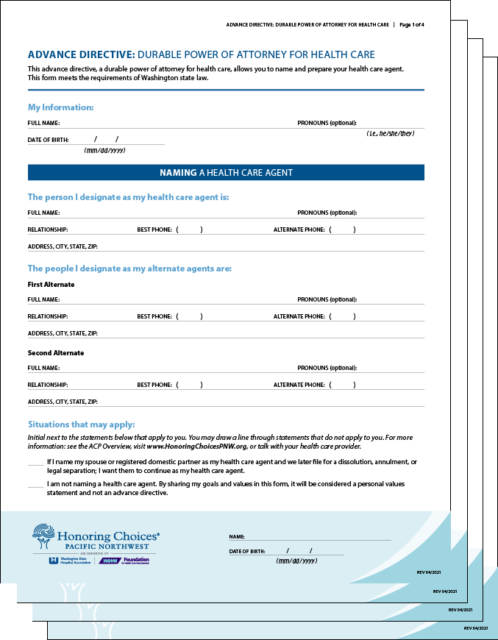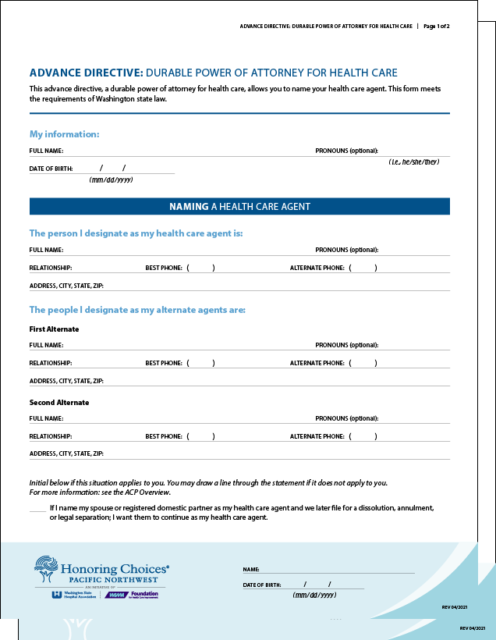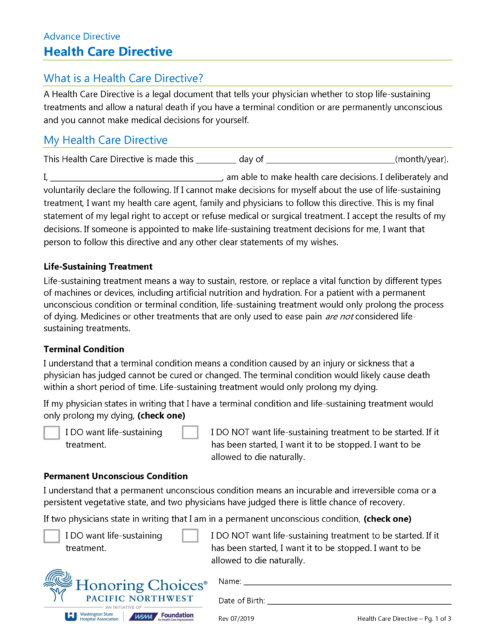
What is Advance Care Planning?
Advance care planning is thinking about what health care you might want in the future. This type of planning includes talking about, writing down, and sharing what is important to you. This helps others make health care decisions for you if you cannot make your own decisions.
What is an Advance Directive?
An advance directive is a voluntary, legal way to write down your advance care planning decisions. You should share your advance directive with people who matter to you—like your health care agent and loved ones—and your health care providers, clinic, and hospital. An advance directive should be updated regularly. All adults 18 and older can complete an advance directive.


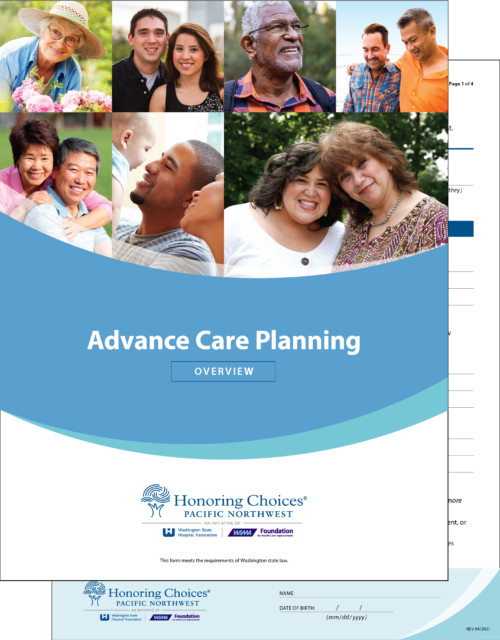
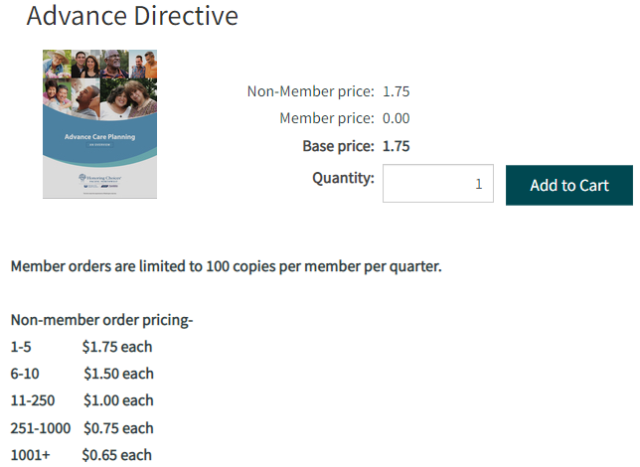

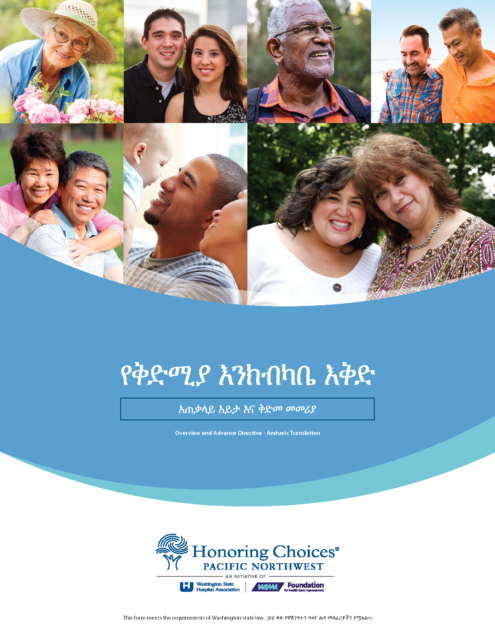
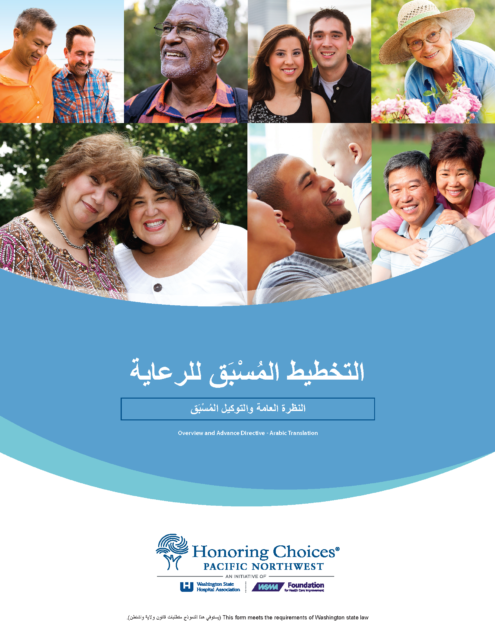


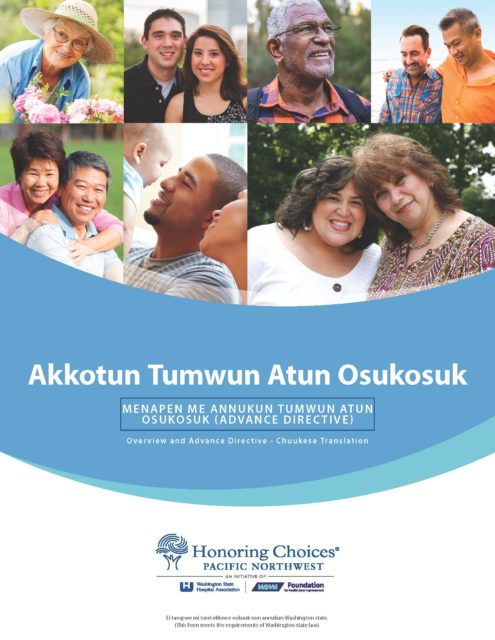

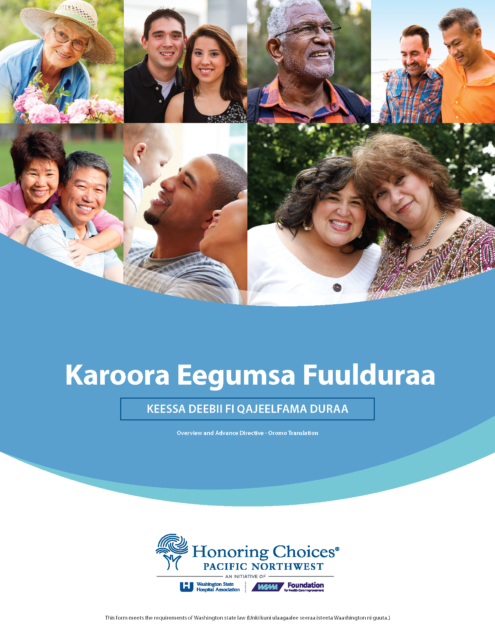
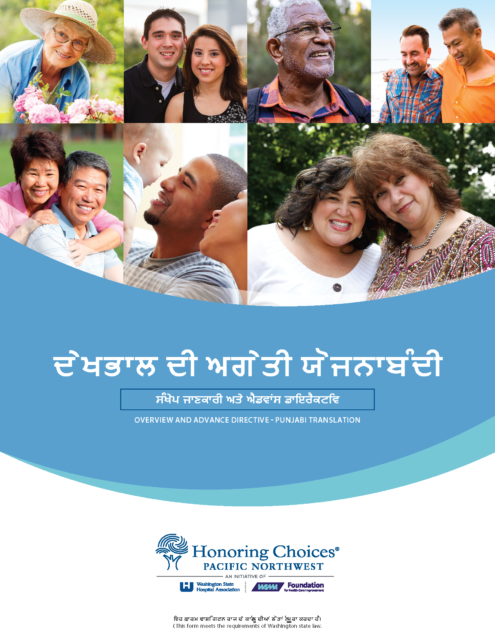

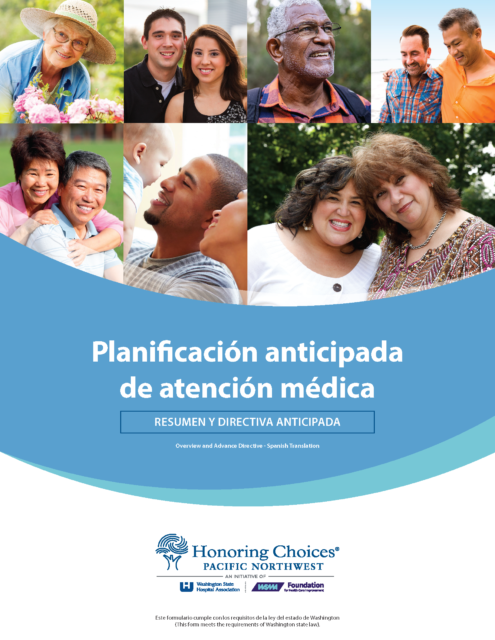
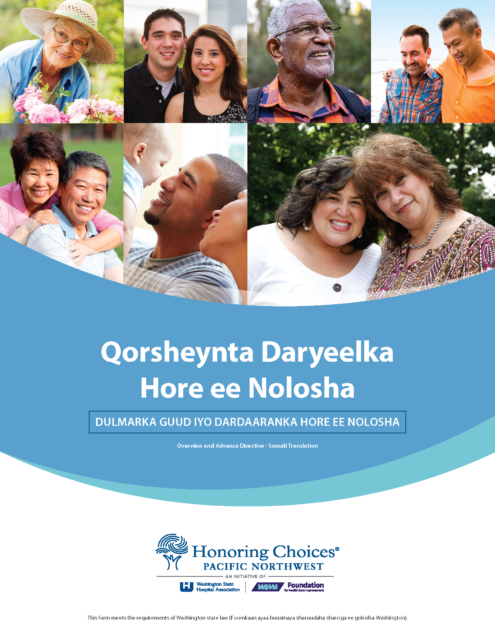
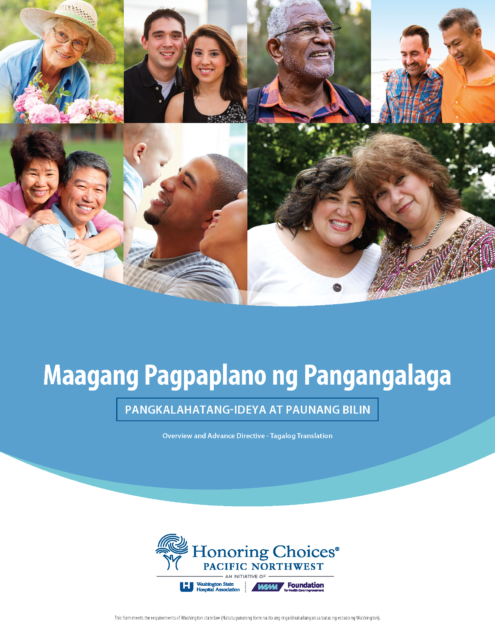
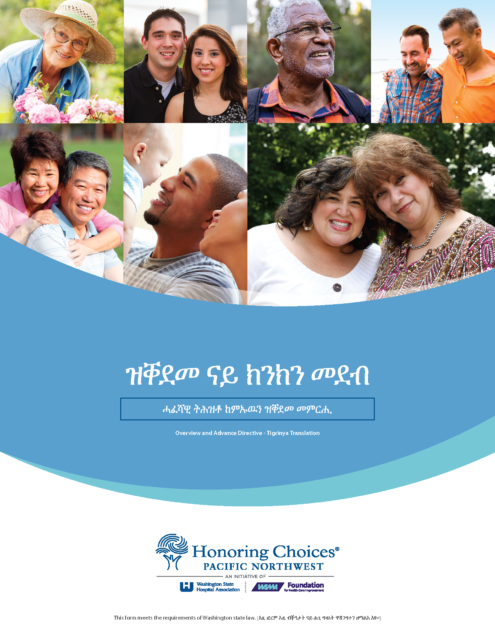


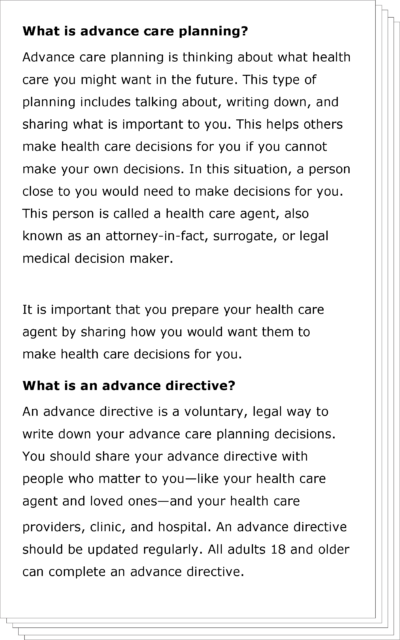 Overview + DPOA-HC (Large Print)
Overview + DPOA-HC (Large Print)